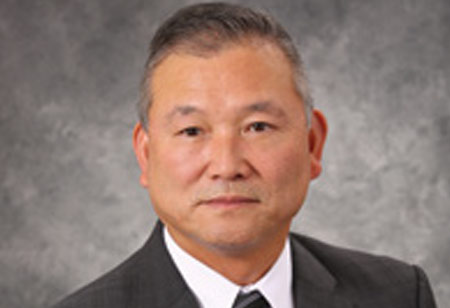

I agree We use cookies on this website to enhance your user experience. By clicking any link on this page you are giving your consent for us to set cookies. More info
Thank you for Subscribing to Electrical Business Review Weekly Brief

Hideki Scott Monobe brings over three decades of extensive experience in the automotive industry, holding the prestigious position of Senior Project Manager Corporate at Mitsubishi Electric Automotive America for the past eight years. With a remarkable 28-year tenure at Toyota, where he served as a Manager in the production control division, Scott developed deep expertise in the Toyota Production System and the complexities of the Toyota supply chain system. His background also includes management roles in production planning and the supply chain section at NUMMI. Scott excels in automotive project planning management and is renowned for his proficiency in e-Kanban inventory systems.
Please describe your current role and responsibilities as Senior Director at Mitsubishi Electric America. I currently hold the position of Senior Director Corporate Logistics at Mitsubishi Electric America, where I oversee logistics and operations across three locations. Our Michigan Sales headquarters manages sales and distribution, while our Mason and Cincinnati facility is the headquarter for producing starters and alternators for Big 3 and major Japanese car companies. We manufacture approximately 90,000 starters and alternators per week at this facility. Finally, our Maysville, Kentucky, location is dedicated to GM engine coils, ECU production, and navigation systems, primarily handling software updates and finished goods. My responsibilities encompass setting policies and optimizing internal and external logistics to enhance operational efficiency. This journey has led me to my current role, where I play a pivotal role in shaping our logistics strategies and practices. What are the key challenges currently impacting the market or being experienced by your clients? One of the significant challenges we are currently facing is the extended lead times for material procurement, whether from our parent company in Japan or suppliers in regions like China, Thailand, and Indonesia. Various disruptions, such as the ongoing impact of COVID-19 and natural disasters like floods, fires, earthquakes, and labor strikes, often exacerbate these prolonged lead times. Another significant challenge has been the shift in customer behavior. Before the pandemic, customers provided us with high and relatively stable forecasts, but the uncertainty caused by COVID-19 and the semiconductor chip shortage has made forecasting much less reliable. Customers often cancel orders with short notice, sometimes reducing their original forecasts by 10 to 15 percent, leading to increased stress on our inventory management and necessitating offsite warehouses to accommodate the surplus materials. This shift in customer mindset has significantly impacted our operations. Have you observed any emerging trends in the market that are helping address these challenges and pain points effectively? In our first year, we began to notice customer behavior focused on high demand, but actual orders were low. We were uncertain about how long this phenomenon would persist, so we relied heavily on the customer forecast. Consequently, we ended up dealing with excessive materials on hand.During Such Prosperous Periods, Customers Often Exceed Their Forecasts And Are Less Concerned About Expedited Shipping Costs To Meet High Demand